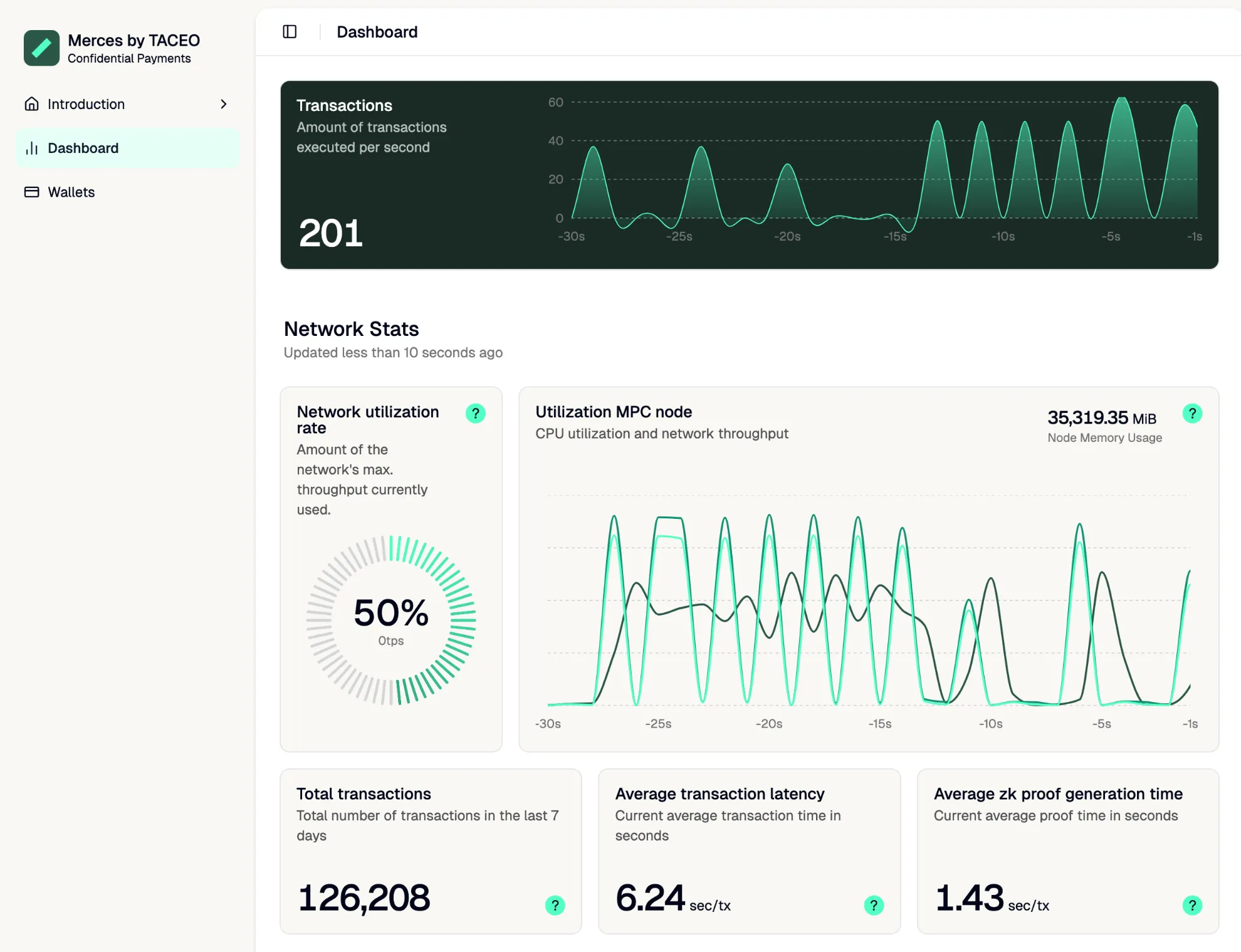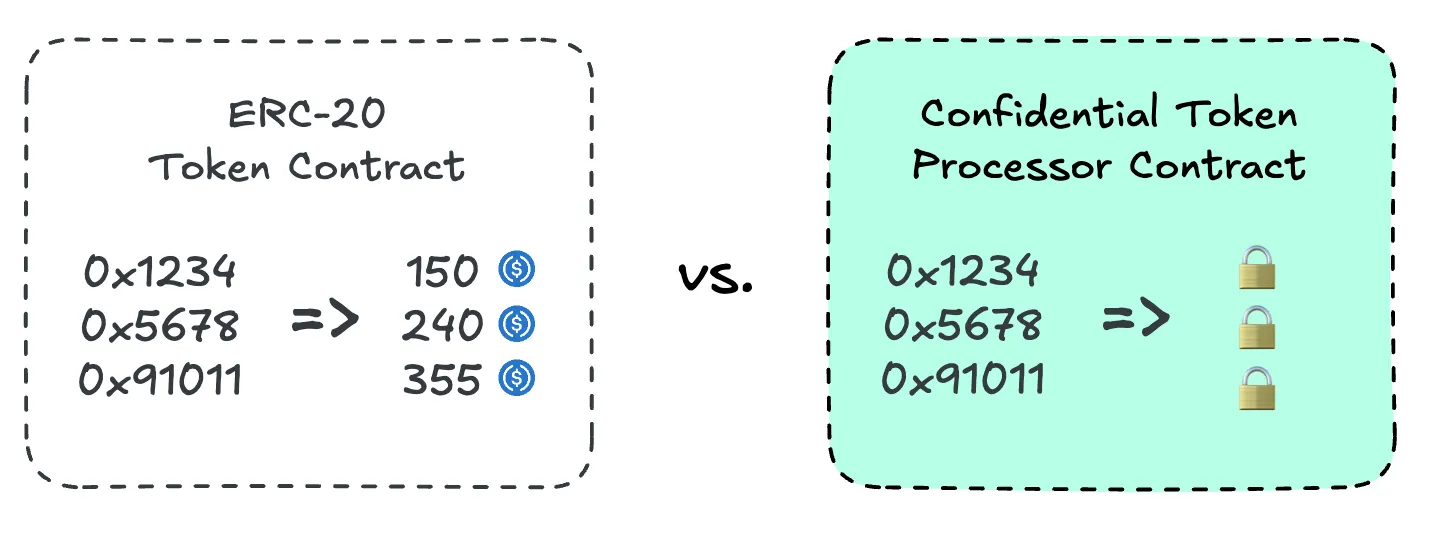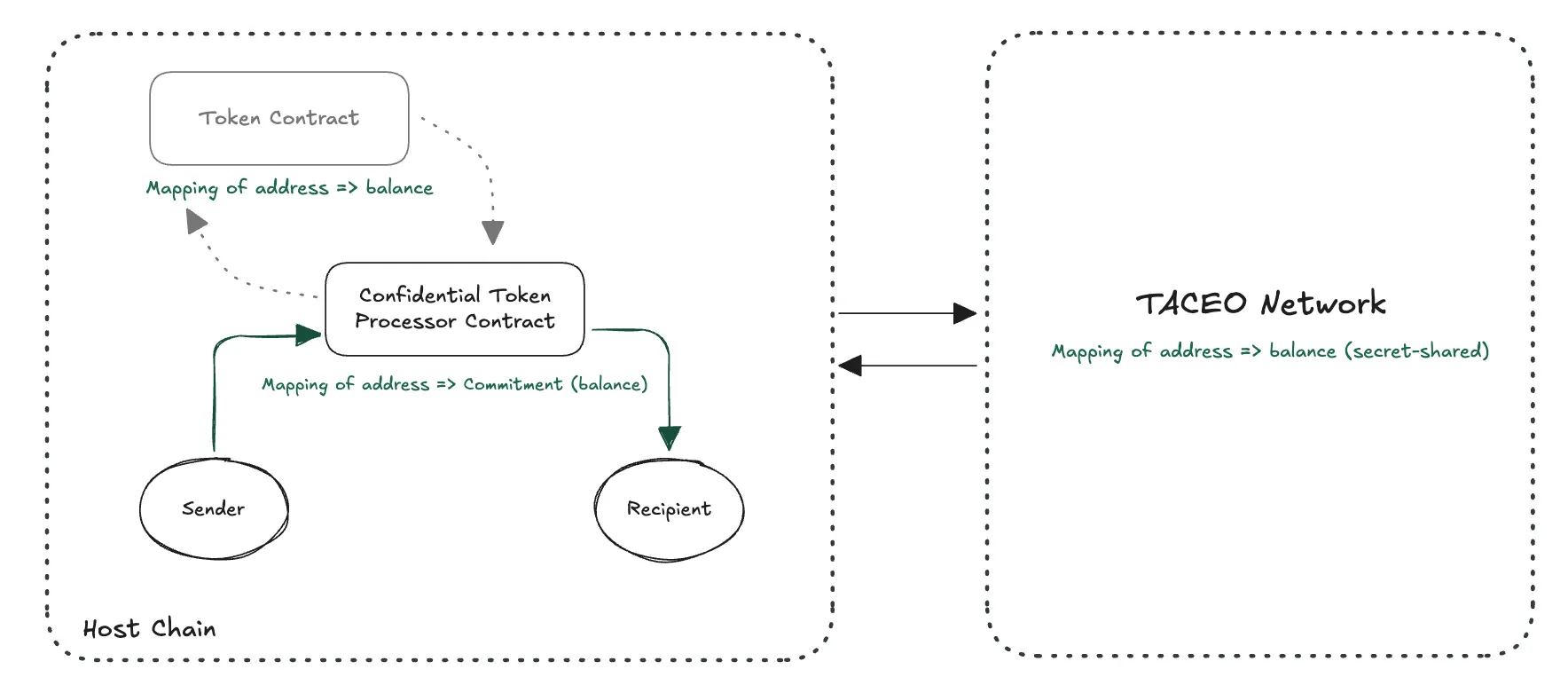The Future of Stablecoin Payments Is Confidential
Stablecoins are fast becoming the foundation of digital finance, powering remittances, cross‑border settlements, and on‑chain commerce. But there’s still one major obstacle to mainstream adoption: every transaction is fully public.
Once a wallet address is linked to a person or business, the entire financial history becomes visible. That level of transparency may serve well for onchain analytics, but it cannot serve payroll, vendor payments, or enterprise settlements.
Merces, a demo built by TACEO, demonstrates the first confidential stablecoin transfer system operating in Private Shared State.
It shows how confidentiality, performance, and compliance can coexist on public blockchains, without sacrificing the trust guarantees that make stablecoins powerful in the first place.
The demo is currently deployed on the Base testnet, with additional network deployments coming. It is designed to run continuously, pushing up to ~200 transactions per second (TPS), comparable to today’s mainstream payment networks like PayPal. Over the coming weeks, the system will issue tens of millions of transactions to demonstrate its resilience under heavy load.
Why Confidential Stablecoins Matter
Public ledgers brought transparency; now they need discretion.
Businesses using stablecoins benefit from instant settlement and composability, but the lack of privacy prevents broader use. You wouldn’t publicly publish payrolls or vendor invoices, yet on‑chain activity today is fully traceable.
Confidential transfers unlock:
- Commercial privacy: Business flows stay private while still verifiable.
- Consumer protection: Users maintain financial confidentiality without hiding intent.
- Regulatory readiness: Selective disclosure and auditability remain possible where required.
Merces demonstrates a practical path to achieving these goals in a scalable, measurable way.
The Merces Dashboard
Merces is a live dashboard showing a running, confidential stablecoin system in action.
Hundreds of wallets exchange USDC test tokens. The backend is the TACEO Network in operation:
- It batches hundreds of transactions every few seconds.
- It submits these to TACEO’s Multiparty Computation (MPC) network.
- It posts aggregated results and CoSNARKs (Zero-Knowledge Proofs) to the Base blockchain for global verification.
The dashboard visualizes key network metrics, providing real-time data on the performance of Private Shared State:
- Transactions per Second (TPS)
- Network and MPC node utilization
- Average latency and proof generation times
- Cumulative transaction count

Take a look at the Merces Dashboard.
How It Works
Merces extends the ERC‑20 token model with a Confidential Token Processor smart contract. Instead of storing plain balances, it stores cryptographic commitments that hide real amounts.

Off‑chain, the TACEO network maintains the true balances in a distributed and cryptographically protected form. Each node holds an encrypted share of the data. No single node has the full picture.
Two fundamental primitives make this possible:
- Multi‑Party Computation (MPC). The participating nodes jointly compute updates to balances, each using its secret share. No funds can move unless all nodes agree on the computation.
- Zero‑Knowledge Proofs (ZKPs). After each batch of transactions, the network generates a succinct proof showing that:
- Senders had sufficient funds.
- Balances were updated correctly.
- No invalid or tampered state could be introduced.
- The proof is verified by the on‑chain contract before new commitments are accepted.

From an outside perspective, only wallet addresses and cryptographic commitments appear on‑chain — never the amounts being transferred.
Looking Ahead: The Full Vision
This demo release focuses on confidential transfers: amounts hidden, addresses visible.
Next steps: extend to fully private transfers, concealing both participants and amounts while enabling selective auditability for regulators.
Privacy, performance, and trust are no longer mutually exclusive. Merces proves they can coexist on open public rails.
- Take a look at the Merces Dashboard: Merces by TACEO
- Read the Docs: Merces Overview
- Follow TACEO on X for the latest news
